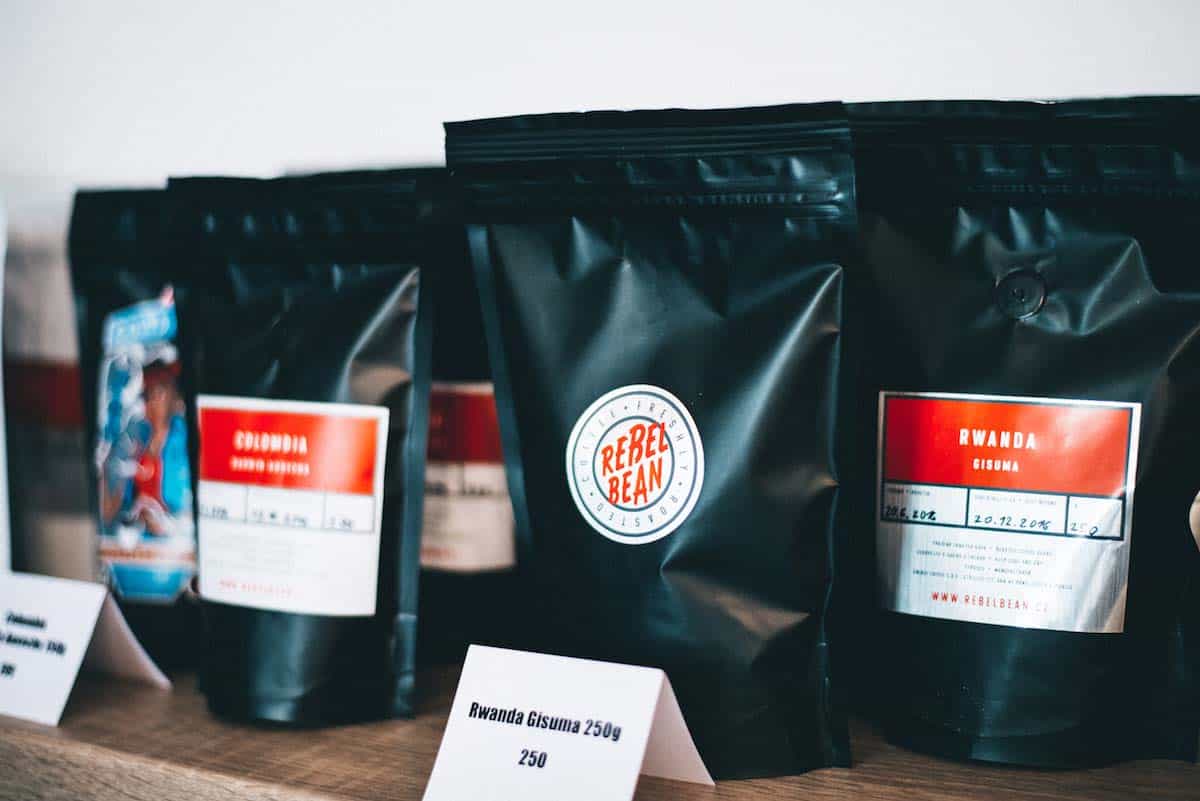This time, we would like you to meet not one but two exceptional individuals from Switzerland! Tobias Seewer is the owner of the inclusive Café Einzigartig and coffee sourcing company – Kebun Malaya. Luziano Aeby is a graduate of the Coffee Specialist for People with a Disability program and an inspiring barista at Café Einzigartig.
These lads have definitely had a different journey and set of experiences, but what connects them both is the passion for coffee, love for people and an extraordinary drive to learn and grow. They also show us the truly positive and inclusive part of the coffee industry that is based on respect, patience and finding joy & satisfaction in an honest, imperfect world.
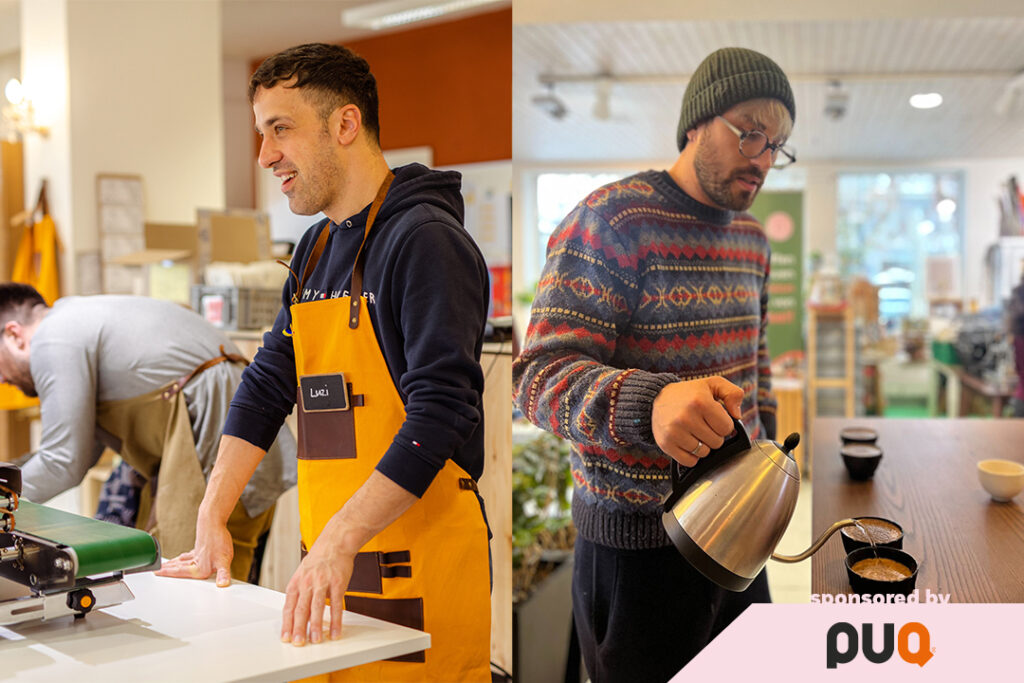
Let’s start with Tobias!
Tobias, what is your first memory with coffee?
Thinking back, my earliest coffee memories are with my grandparents. Even as a child, I was strangely drawn to bitter flavors, and I think my grandfather once let me try a sip of his coffee, probably hoping I’d dislike it and stop asking. But it backfired, because I actually liked it.
A particularly vivid memory comes from when I was 16. I joined a local youth film competition with my best friend. The theme was “coffee,” and we had two weeks to make a short film. By pure chance, we ended up interviewing an elderly man—an ex-air force pilot who had flown during the Second World War. He told us how, back then, only pilots were allowed to drink real coffee, while others had to make do without. Coffee was scarce, and he shared stories about pilots smuggling beans home for their families.
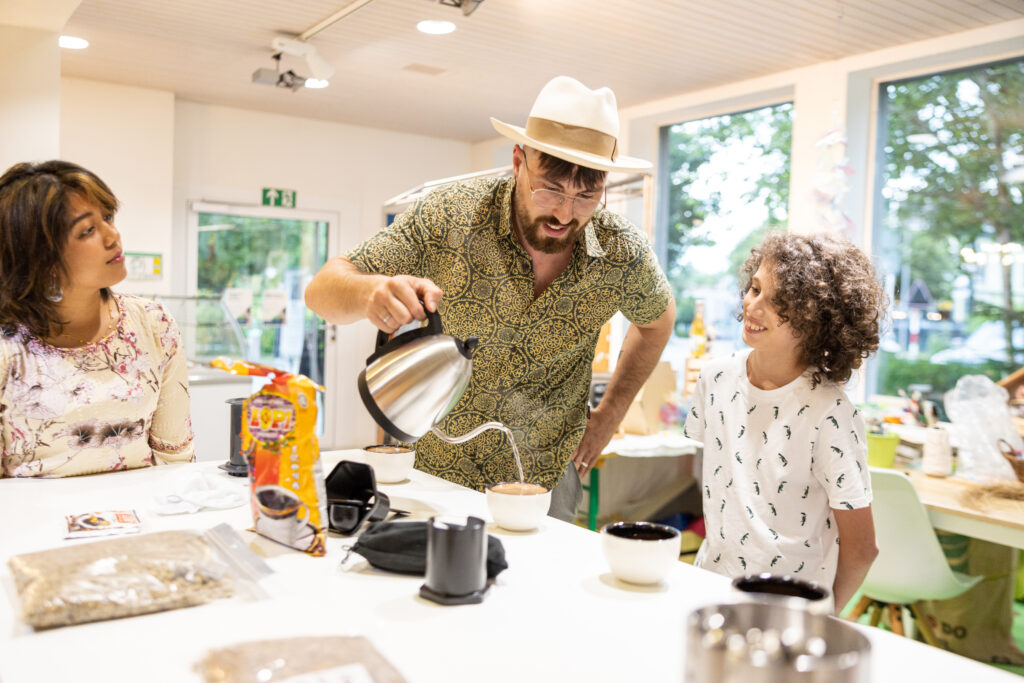
What inspired you to pursue a career in the coffee industry, and how did you get started?
It all started during the height of the COVID-19 pandemic, in 2020 and 2021. I had just finished my second university degree in business and communication, and I was supposed to start a corporate job at a pharmaceutical company. You know—the typical white-collar path after business school. But then the world shut down, and like many others, I suddenly had time. A lot of it.
At the same time, the care home my parents founded—called Wydehöfli—had finally found a space in the center of town to realize a long-held dream: opening a shop where they could sell products made in the care home’s various workshops. These included herbal teas from their garden, homemade jams, wooden crafts, and more. With my background in business, they asked me to write the business plan. And I didn’t want to just create your typical care home gift shop—I wanted to create something with a broader impact. I’d learned in school that if you focus on one “star product”, everything else can build around it. For me, that product was coffee.
Later on, the idea of Café Einzigartig arose, again with inclusion at the centre of it. But inclusion again isn’t real if only some people get access to education. So we went a step further and developed a vocational program: “Coffee Specialist for People with a Disability”. From that moment on, we stopped calling ourselves baristas. Everyone at our café, Einzigartig, became a coffee specialist. For us, coffee is more than what happens behind the bar. It’s about understanding the entire value chain—from the plant to the cup — and respecting the work behind every step. We teach our team everything from brew methods and customer service to hygiene, storytelling, and how to speak about coffee with confidence.
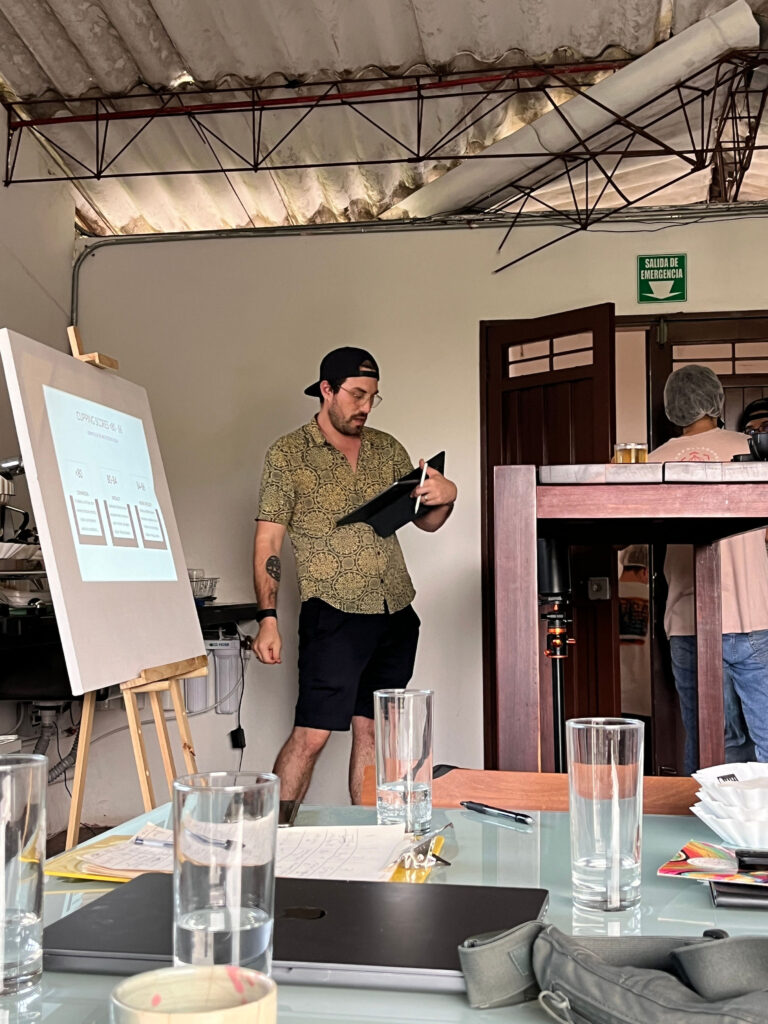
How is the program going so far?
It’s been incredibly rewarding. Luziano was the first to complete the full apprenticeship. It was a pilot program, but a successful one, and now more people. want to follow in his footsteps. Of course, a year-long apprenticeship requires funding and, importantly, more inclusive cafés willing to hire graduates.
We’re currently preparing for the next round of the program and planning the opening of our second location in the heart of Basel. It will be more than a café—we’ll also start roasting our own coffee there. The goal is to become an inclusive specialty coffee roaster. Because this isn’t just about coffee. It’s about proving what’s possible when we build systems that include everyone.
What inspired you to create such unique and inclusive concepts?
A lot of what led me here I’ve already touched on, but one important part I haven’t mentioned yet is that I grew up surrounded by people with disabilities. My parents built a care home, and my brother has a disability as well. So inclusion wasn’t an abstract concept for me—it was simply part of life.
That said, I never imagined I’d work in that same space. I studied business and envisioned a more conventional career path. But somehow, over time, I found a way to merge both worlds—my professional training and my roots. And honestly, I couldn’t be happier with where that journey has taken me.
What we’re building now is more than just a café or a shop—it’s a space where people with and without disabilities work side by side, as equals. It’s about creating real, visible opportunities and redefining what inclusive entrepreneurship can look like.
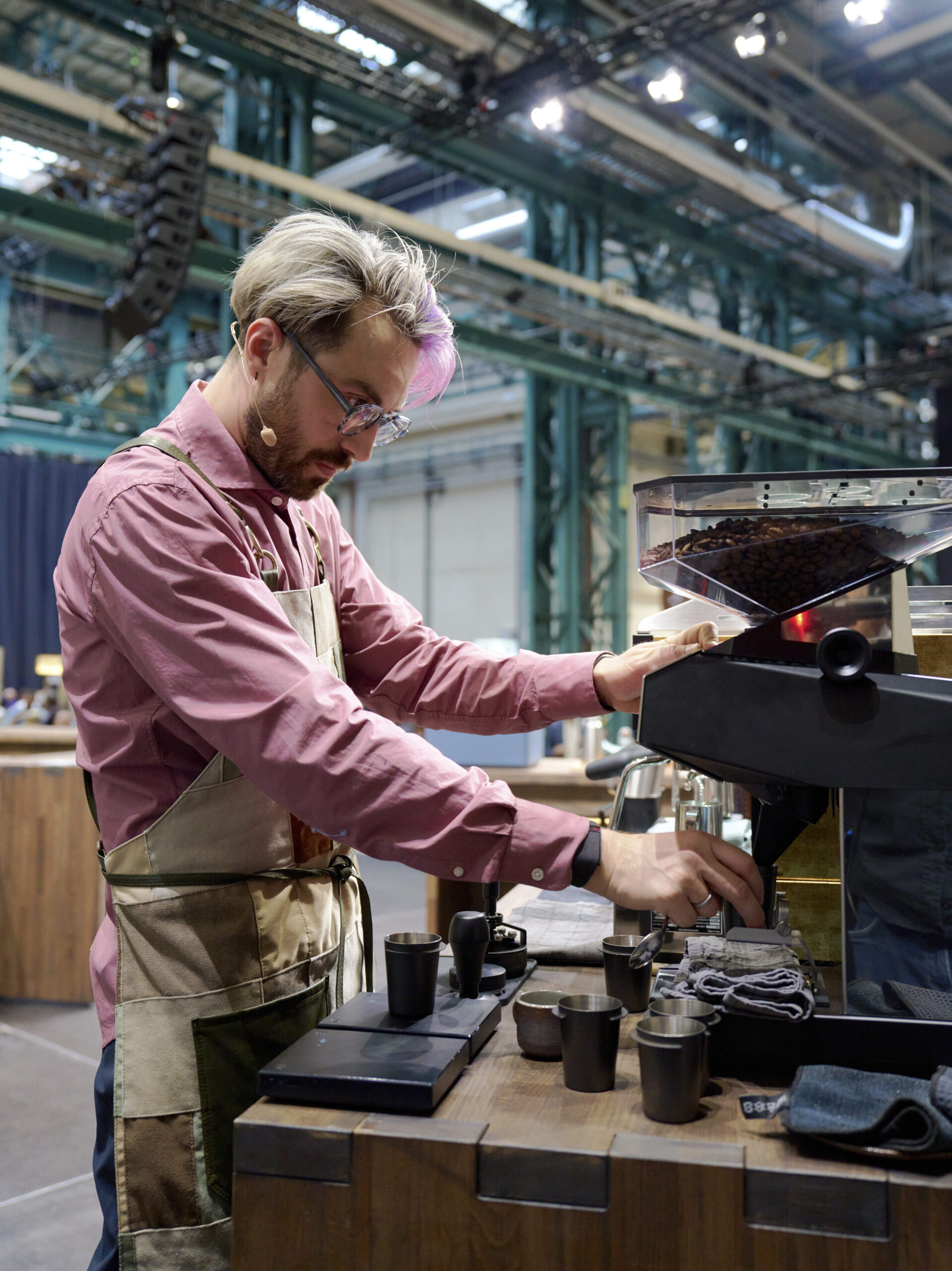
Specialty coffee and social impact don’t always go hand in hand. Why was it important for you to build an inclusive workspace?
The reason they don’t always align is, frankly, because too many decisions in our industry are driven by convenience and short-term profits. I know this path isn’t easy. I’ll make mistakes, and I’ll have to adjust and try again. But it’s important to me to at least try — to explore every possible path toward meaningful impact. Inclusion of both people and rare coffee species might require more time, effort, and resources, but in return, it creates lasting value.
Real, human value.
How did you go about designing a café model that integrates both inclusive and traditional baristas? What were the biggest challenges in making it work?
A lot of that connects to what I’ve said about knowledge sharing. The challenges are ongoing and require constant innovation. For instance, there’s no formal support system yet in place—no legal framework to fund apprenticeships for people with disabilities, or to make sure that employment doesn’t cost them other forms of assistance.
Another big challenge is communication. It’s like learning a whole new language—one that involves cultural nuance and empathy. You can’t just translate things word for word. You have to find the right words, the right aiding tools, to help each person thrive.
How do you ensure that Café Einzigartig is a space where every team member thrives?
By making sure everyone is part of shaping it. Every team member contributes to the atmosphere, the quality, the values we uphold. Every person holds real responsibility, and their ideas are taken seriously. If someone comes forward with a new idea for the café, we listen. If it fits, we implement it.
And if not? It was still a great idea—it just didn’t fit at that moment.
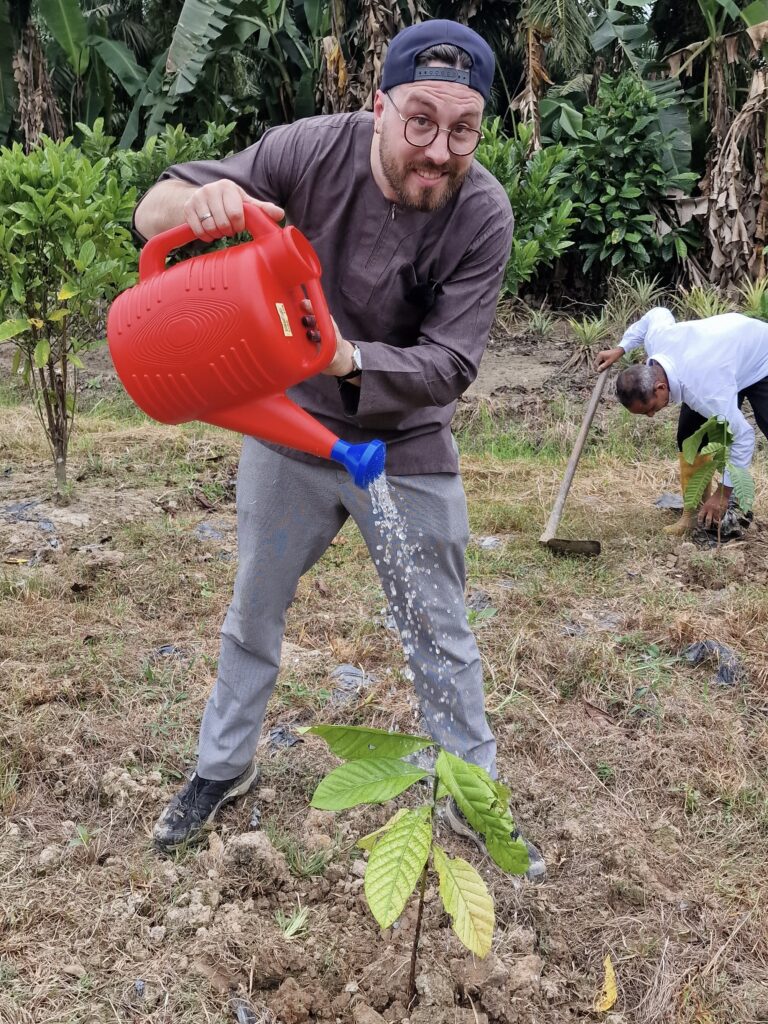
What impact have you seen on customers who interact with your inclusive team?
When I was a child, walking through town with my brother, who has a disability, some people would cross the street or pull their kids away from us. Today, at our café, it’s completely different. We have a kids’ corner, moms enjoying their coffee, and expats working on laptops. And all of them interact with our inclusive team as if it’s the most natural thing in the world – which, of course, it is at Café Einzigartig.
How do you see Café Einzigartig growing in the future? Would you like to see more cafés with a similar inclusive approach?
Yes! We’re actively growing. Right now, we’re building our second outlet—Einzigartig Clara—and we’ll also be. starting to roast our own coffee there. That opens up a lot of new possibilities, not just for us but for how we include people in every stage of the value chain.
Together with Kebun Malaya, we’ve been attending events like World of Coffee and Barista Championships to raise awareness. And yes, our dream is to inspire more cafés to adopt inclusive models like ours.
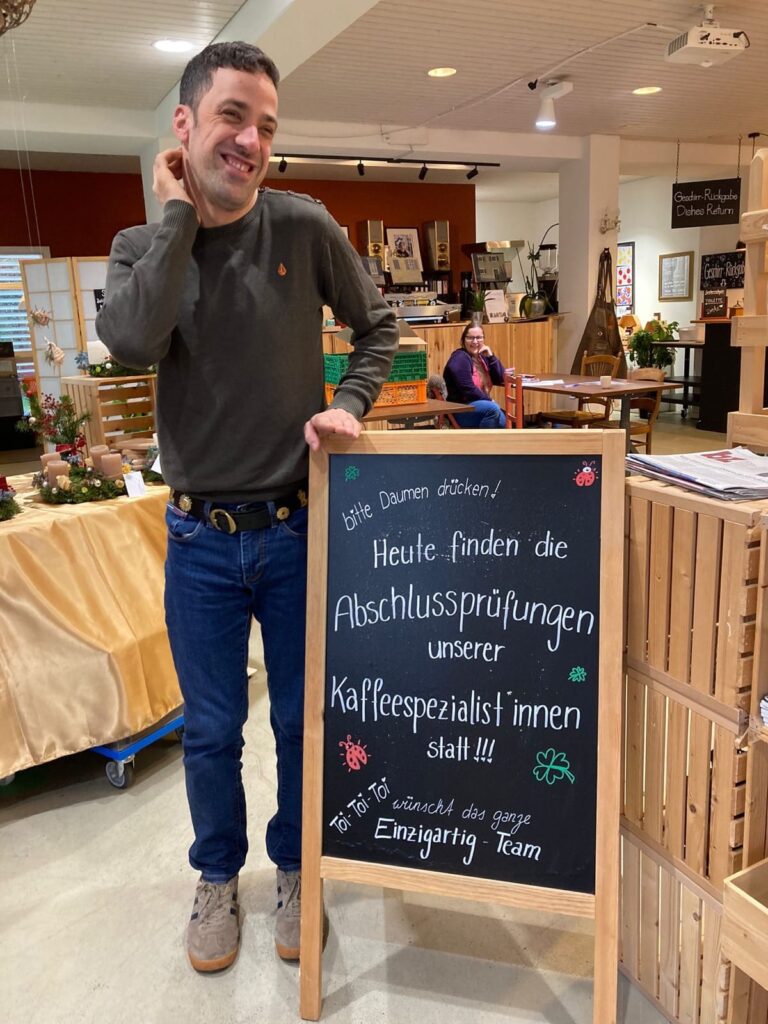
Time for questions for Luziano Aeby, the 1st Coffee Specialist of Café Einzigartig.
Luziano, what’s your first memory of coffee?
Hmm… that’s a tough one. I think it was my first time in Basel. The weather was nice, and someone brought me a coffee. I remember thinking, “Hmm, that’s interesting—I think I like it!”
What first sparked your interest in coffee? Was there a moment you knew you wanted to be a barista?
Honestly, I was really surprised to learn I could become a Coffee Specialist. I remember walking past Café Einzigartig and thinking, “Wow, I’d love to work there.” Then, someone asked if I wanted to train as a coffee specialist. I thought, “Ohhh, that sounds interesting!” I’ve always wanted to work in service—in a restaurant or café, being with customers. So when I was offered the apprenticeship, it felt like the right fit. Becoming a barista felt like a dream job—working in cafés, doing something beautiful and fun every day.
What does being a barista mean to you? How do you feel behind the counter?
What I love most is making a great coffee, foaming the milk, and managing to pour a heart on top. Then serving it to a guest and hearing them say, “Wow, what a beautiful coffee—and it tastes so good too!” That makes me feel amazing.
When a customer tells me they love coming here for coffee, that’s the most important thing to me.
You love engaging with guests—do you have a favorite question they ask?
Yes! When they ask, “Do you work here?” and I get to say, “Yes, I’ve been workinghere for a few years.” Then they often say I’m doing a great job—that always feels really good. I love talking to people and asking them questions too.
Sometimes guests ask about the coffee we serve and the producers behind it. I enjoy showing them: “This one’s called Flhor, and this one’s from Henrique—both organic Arabicas.” I like helping them choose what to try.
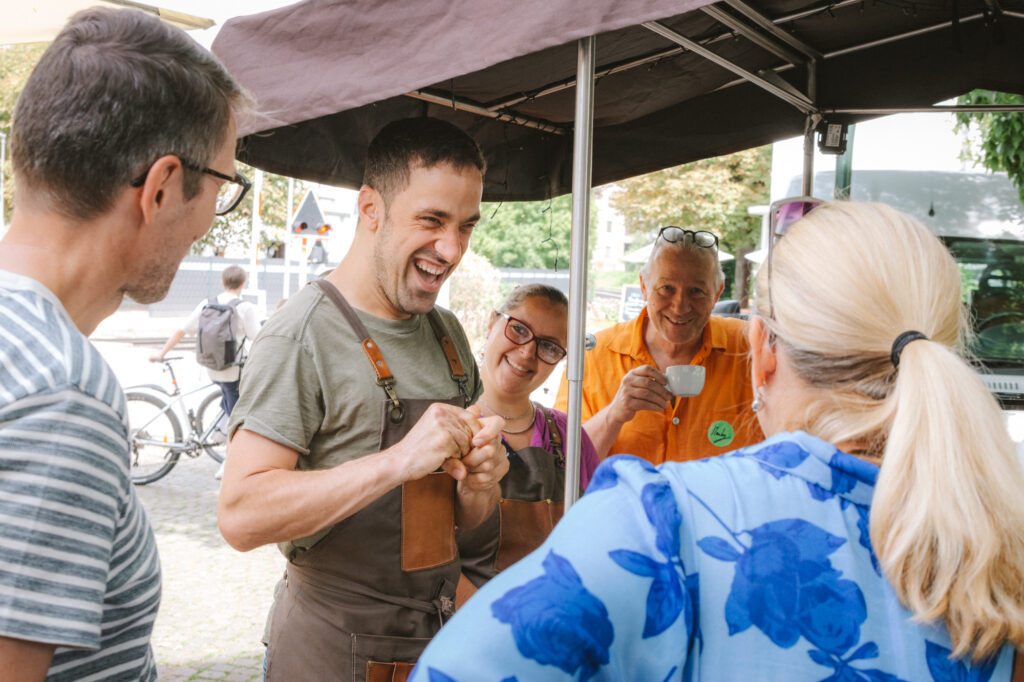
What’s one skill you’ve learned at Café Einzigartig that you’re most proud of?
I’ve learned so much. The whole training course was a huge gift. When I got my diploma, I thought, “Wow—I’m a coffee specialist now!” I learned how to use the espresso machine, where coffee comes from, how to steam milk properly, clean the steam wand, and use the point-of-sale system so customers can pay.
Each step matters to make a great cup.
Can you share a moment when you felt especially proud to be part of this team?
Ohhh, there are so many! I love it when we get new team members. But maybe the best moment was our graduation party—it was so special. I also really enjoyed going to events with our Bike-Café, like when we went to the Tour de. Suisse to serve coffee. Last year, I went to the Swiss Coffee Festival. It was a bit crowded sometimes, but I really enjoyed it.
I also felt proud when Toby got on stage. I didn’t get to see his performance because I was busy serving customers, but I was proud that so many people saw him. The whole vibe was just amazing!
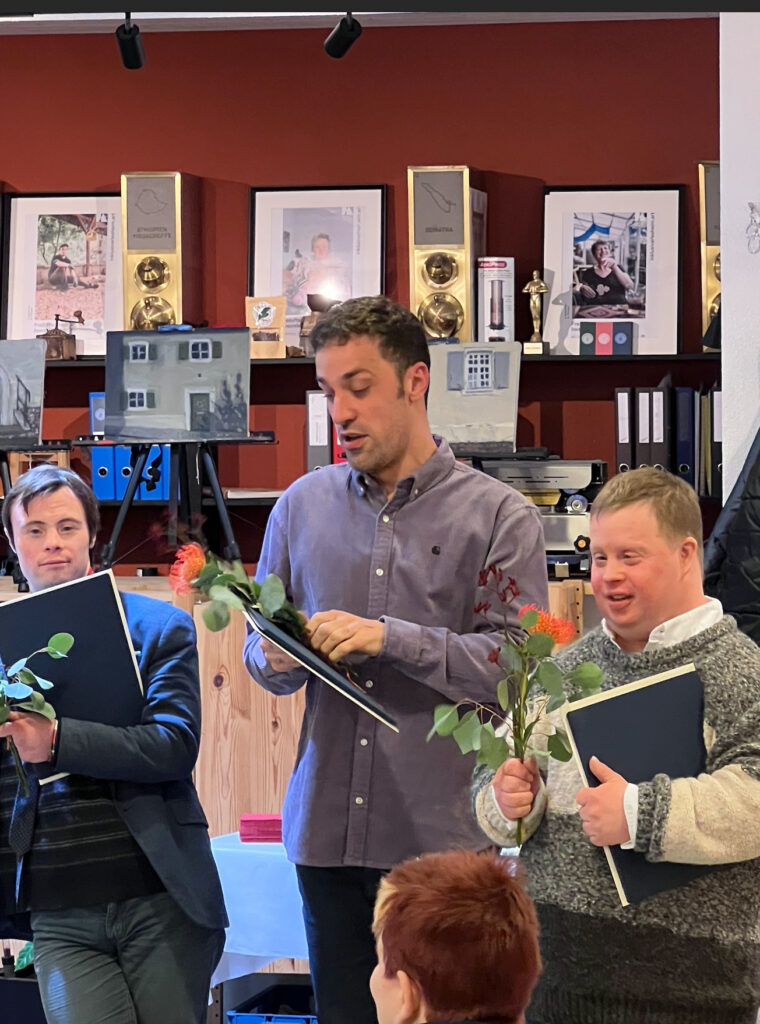
Your favorite drink is a latte macchiato—what makes it so special to you?
I love the foam, the espresso, and the milk. When I drink it, I just feel happy.
If you could visit any coffee farm in the world, where would you go and why?
I’d love to visit our coffee farm in Malaysia—the one Tobias always talks about. I’d also be interested in visiting a Spanish-speaking country because I know a bit of Spanish. I’m not sure exactly where, though.
What’s one fun fact about you that your customers might not know?
That I’m good at my job.
But don’t the customers already know that? 🙂
Yes, but the new ones don’t yet!

Quick Fire Questions for Tobias & Luziano:
Filter coffee or espresso-based?
Tobias: Filter coffee
Luziano: Espresso-based.
Milk coffee or black coffee?
Tobias: Black or a good Flat White
Luziano: with Milk.
The most underrated coffee drink?
Tobias: Flat White
Luziano: Latte Macchiato!
Favourite barista tool?
Tobias: Tamper
Luziano: Espresso machine
Favourite city outside your own for a coffee tour and why?
Tobias: so many, can’t pick!
Luziano: Basel <3
